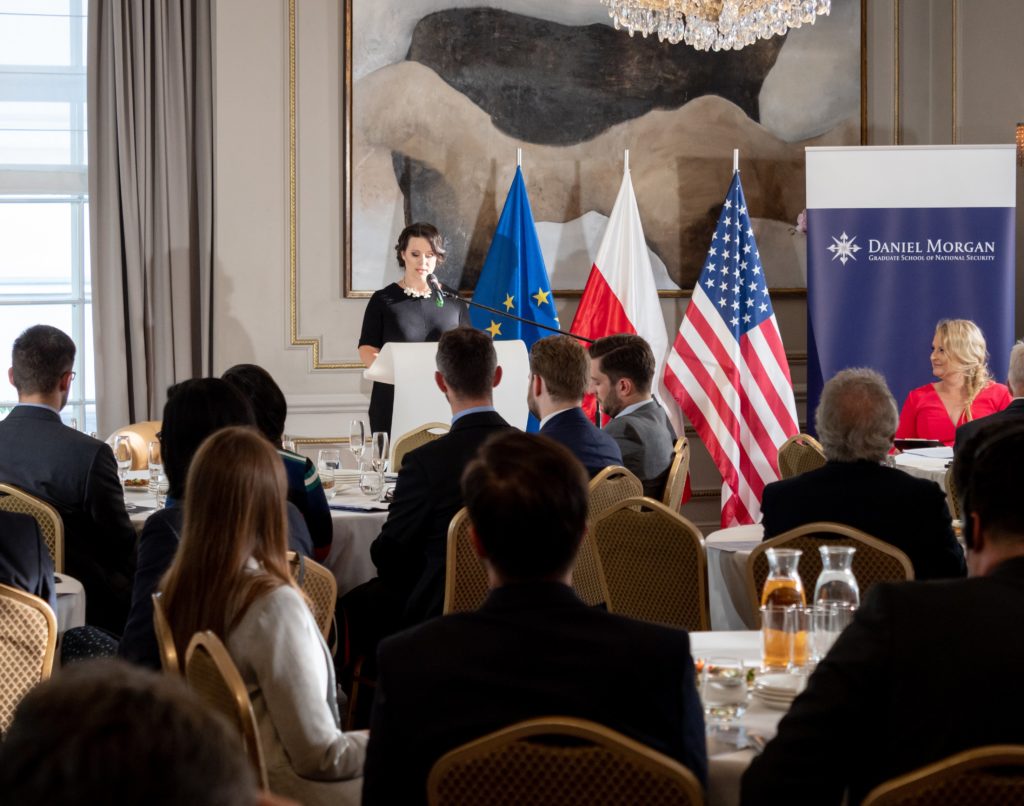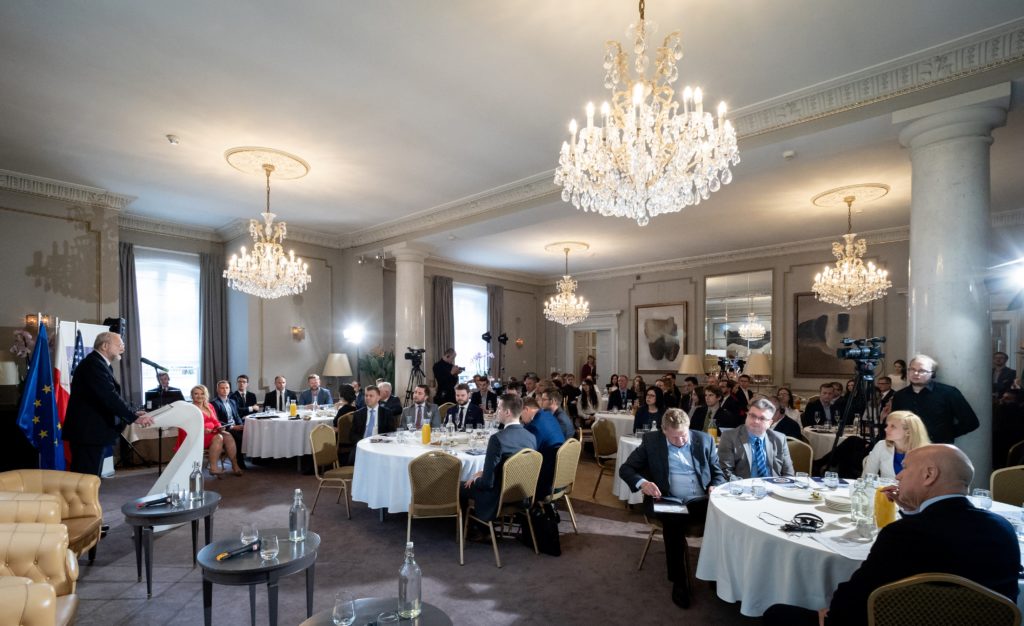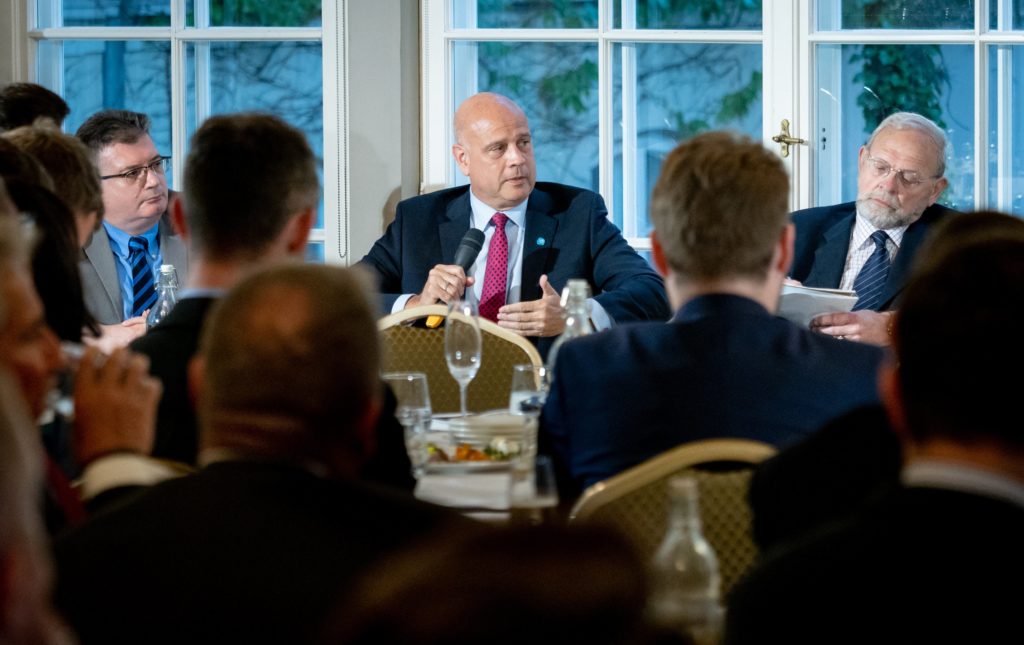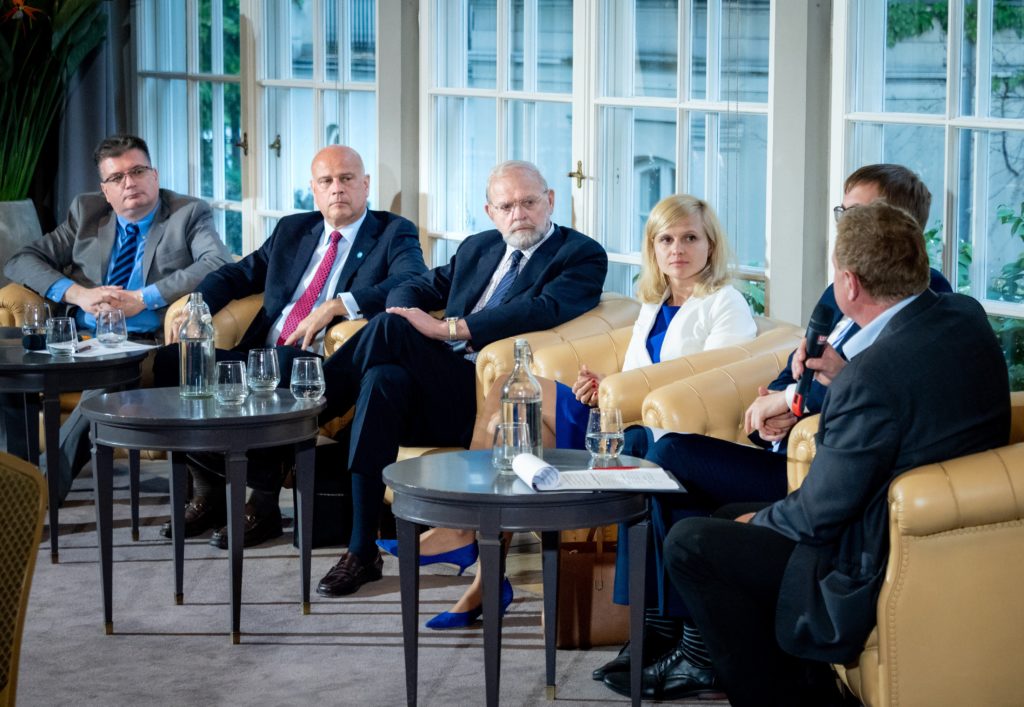On 14 May 2018, the Daniel Morgan Graduate School of National Security (DMGS), a higher education institution specialising in the areas of defense and national security, officially inaugurated its presence in Europe. The inauguration event was co-hosted by the Kulski Foundation.
The event was attended by representatives of embassies of European countries, including Belgium, Bulgaria, Denmark, Greece, Georgia, the Netherlands, Romania, Ukraine and Hungary, government officials, representatives of the Chancellery of the President of the Republic of Poland, as well as members of the academia and non-governmental organizations. The first part of the ceremony, which took place on the premises of the Community of Democracies, was hosted by Steven Meyer, Dean of Graduate Studies, DMGS, former Deputy Chief of the CIA’s Balkan Task Force, and Thomas E. Garrett, Secretary General, Community of Democracies. Mr. Meyer and Mr. Garret officially inaugurated the European operations of the Washington-based learning organization. The event began with the reading of a letter from the Prime Minister of the Republic of Poland, Mateusz Morawiecki, by the President of the Board of the Kulski Foundation, Barbara Ratajska.

As Dean Meyer emphasized, the United States attaches great importance to multifaceted security cooperation with its European allies. The actions taken so far have led to a significant improvement in the situation in the region of Central and Eastern Europe and have given a perspective for further development of mutual relations, he noted.
“In the past, we had to make difficult but necessary decisions. A time of difficult debates, but also of pursuing common policy goals, is behind us. We are constantly looking for the common ground, the things that unite us. We want the work done by the Daniel Morgan Graduate School of Security to become a dimension of our full participation in the life of Europe. That is why we have decided to expand our offer and, at the same time, improve the education environment for European students. This also shows that the transatlantic relations are currently excellent,” Steven Meyer said.

Szymon Dziubicki, speaking for DMGS Alumni Club Europe, stated that the inauguration of DMGS in Poland is also an important day for the Polish academia. He pointed to new perspectives that have opened up for researchers and students.
“The United States of America is one of the key foreign partners of Poland on many levels and plays a special role in the whole region we live in. We are glad that it was in Poland where DMGS decided to launch its European operations. Expanding DMGS educational offer is the right way to go as this will not only ensure the school’s development, but will also form a basis for new projects and ventures for building a broad partnership between both Poland and the USA, and Europe and the USA,” Mr. Dziubicki said.

The inauguration was accompanied by the international conference National Security and Defense Challenges to the Transatlantic Relations, held at the Sobański Palace in Warsaw. During the panel discussion, Steven Meyer, Thomas Garrett and Szymon Dziubicki were joined by Jarosław Gryz, War Studies University in Warsaw and Katarzyna Pisarska, Director, European Academy of Diplomacy. The panellists discussed changes and challenges related to national security and defense, as well as voiced the need to educate future leaders who will be equipped with the knowledge and skills required to effectively cope with tomorrow’s problems.
Mr. Meyer pointed out to a recent and groundbreaking shift in geopolitics. “After the Second World War, the United States grew to become the only real superpower, but the situation has already changed. This system is disintegrating – the USA is a strong and influential country, but certainly not the superpower it used to be. The competition is growing, so to speak, with many challengers such as Russia, Brazil, India, China or South Africa entering the global stage. This is a new development for which we are not yet prepared. This is the focal point: above all, we must focus on adapting to this new order of things and consider how to deal with the ensuing problems and challenges in the area of internal security,” DMGS Dean said.
In her speech, Katarzyna Pisarska alarmed that the biggest emergency we are currently facing is not a nuclear crisis, but a crisis in communication between the public and politicians. “It is extremely important to find reliable partners, because this crisis of confidence will be a major challenge for transatlantic relations, especially in view of the growing community building within Europe. The loss of this mutual trust will mean the end of what we know as the Transatlantic Alliance,” noted the Director of the European Academy of Diplomacy.
